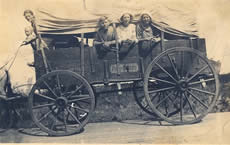USA PEOPLE SEARCH BY NAME!
- ❖ Current Address
- ❖ Phone Numbers
- ❖ Criminal Records
- ❖ Public Records
- ❖ Neighbors
- ❖ People's Age
- ❖ Property Ownership
- ❖ And Much More
Wed, 6 Dec 2017
Weighing In On Public Record Search on the Internet
HOW:
You can do your public record search on the Internet in two ways, either directly on government web sites (practiced by a number of jurisdictions) or through information brokers and commercial data compilers (both of which obtain the public documents from courts and government agencies who sold them).
The first option offers access to public records at a low cost or for free, while the second option requires you to give a fee through network connections or websites.
WHAT:
Either way, the personal information you can gain from having access to these records include registered voter files (though some states have restrictions), court files (bankruptcy files, civil court recordings, case indexes, warrants and criminal arrest/conviction documents, and tax liens/judgments), professional/business licenses, property tax assessor records (typically containing owner’s name, property description, and assessed value), and motor vehicle records (including driver history, registration, and licensing details).
WHY:
Public records are called such because these records, aside from being available to the public, allow people to monitor the government. With access to public documents, citizens become aware of any actions taken by their government officials.
On top of that, members of society can keep tabs on the status of property and individuals. All of these reasons give people the tools they can use to hold the government accountable for their actions.
BUT:
On the other side of the coin, however, are sensitive information about individuals like birth dates, financial account details, and Social Security numbers.
When all of this information (usually sourced from bankruptcy filings, child custody cases, and divorce decrees) are made available to anyone, it could result to a number of negative consequences:
- Identity theft. Making public record search on the Internet easy can fuel different types of fraud, including identity theft. Identity thieves can use a person’s name and other personal information to make purchases; when the victim fails to pay the bills for his or her “purchased” services and goods, he or she ends up with a tarnished name and credit history, preventing him or her from obtaining employment and loans.
- Secondary uses of data. Instead of being used to monitor the government, public records that are made available online can be used for other purposes, none of which are for benefit of the people. By gathering public information from different sources, then merging them with commercial records, the result of which may be sorted in various ways, could mean the possibility of creating new records. For instance, divorce files can be accessed by a singles-only resort and used to collect personal information of the individuals they are targeting.
- Destroyed reputations. Having one’s personal life brought to public scrutiny through the Internet, especially when it involves court records, can result in embarrassment, discrimination, and destruction of one’s reputation. One cause is the fact that no fail-safe database exists anywhere on the web and that no perfect data file users have been born yet. As a result of identity theft, for example, you may have seen the problems that many individuals go through because they were mistakenly linked to crimes they did not even have any knowledge of, problems that occur after the identity thief uses his victim’s personal information in the event that he is seized by the law.
Public Record Search For Personal Safety
Another cause is when tax-related offenses made by an identity thief get listed in the victim’s name. Lastly, the right information might be obtained by a background checker on the wrong person as a result of not meticulously matching the details with the exact person, or the background investigator is not aware of dismissals or acquittals because an information broker’s records have not been updated.
- Risks to personal safety. Victims of witnesses of stalking, domestic violence, and other criminal offenses, whose names can be found in court documents, can find their safety put at risk once their personal information are made available to the public. A person may choose not to file a case for domestic violence, for example, because he or she is afraid of being located and then harmed by the offender. On the other hand, the witness to the said domestic violence may suffer from the hands of the perpetrator seeking for revenge.
A number of individuals, for fear of experiencing the negative consequences just mentioned, could eventually decide to participate less and less in public life in order to avoid having their personal details collected. This is so removed from the big advantage of making public record search on the Internet possible, which is to gain knowledge about other people.
More to read:
What Is An Asset Investigation?
Public Records Available Online
When To Use A People Search Service
People Search Benefits
The Power of People Search Engine
Arrest Record - What Are Arrest Records?
People Search And Background Checks
Many Reasons To Do A People Search These Days
It Is Easy To Use A People Search
Taking Pictures In Public In The USA
A People Finder Versus Social Media Platforms




